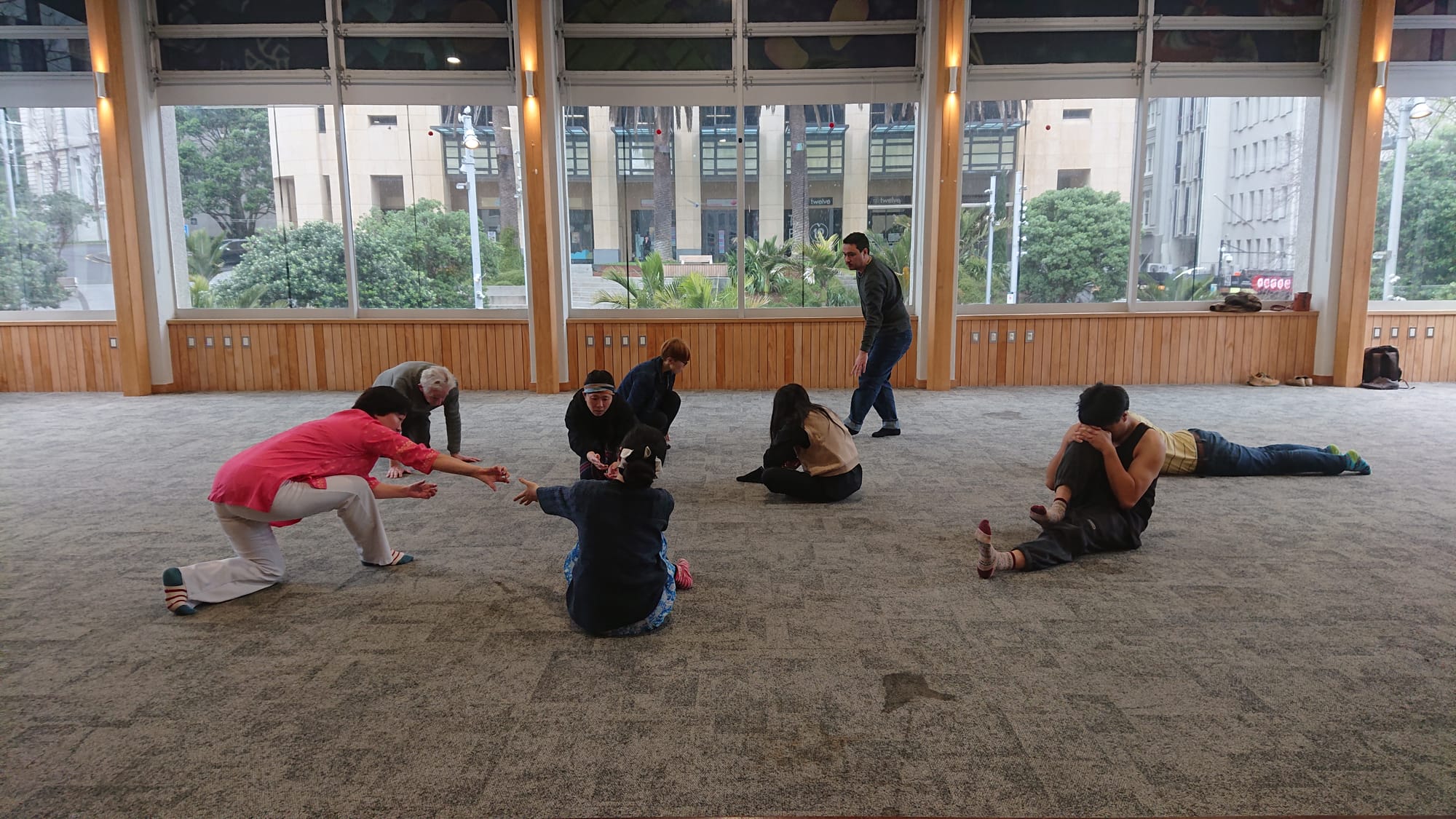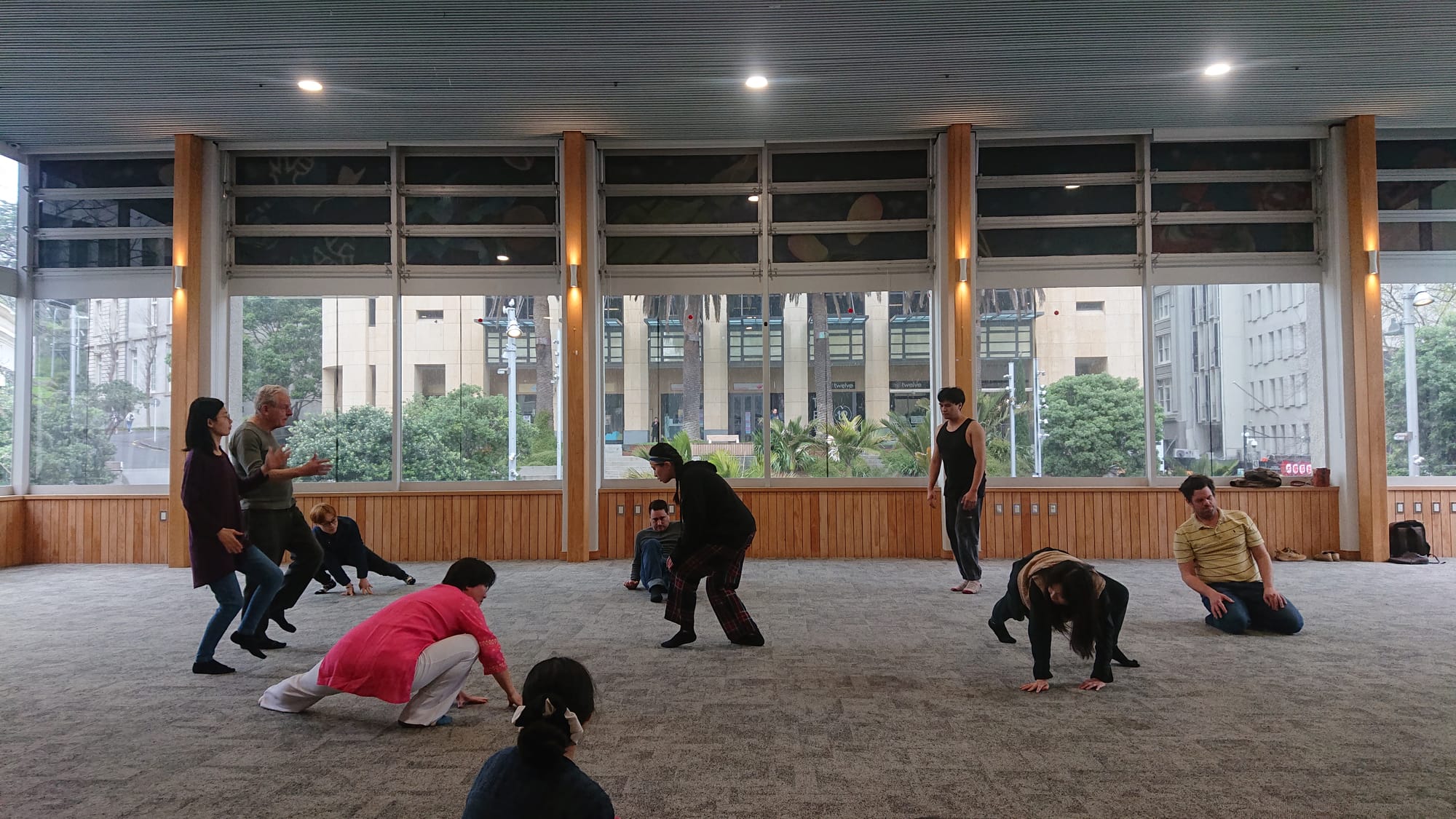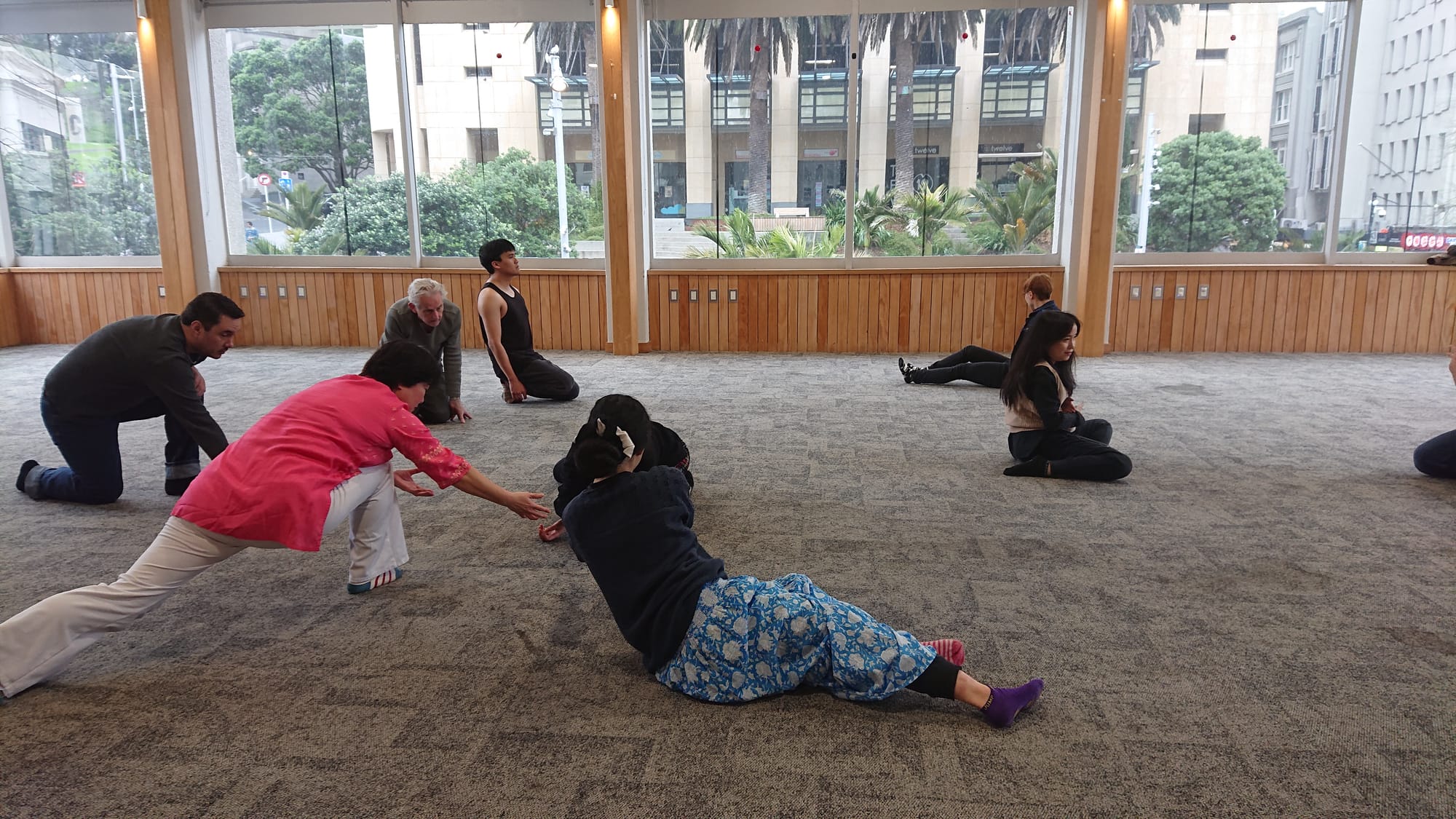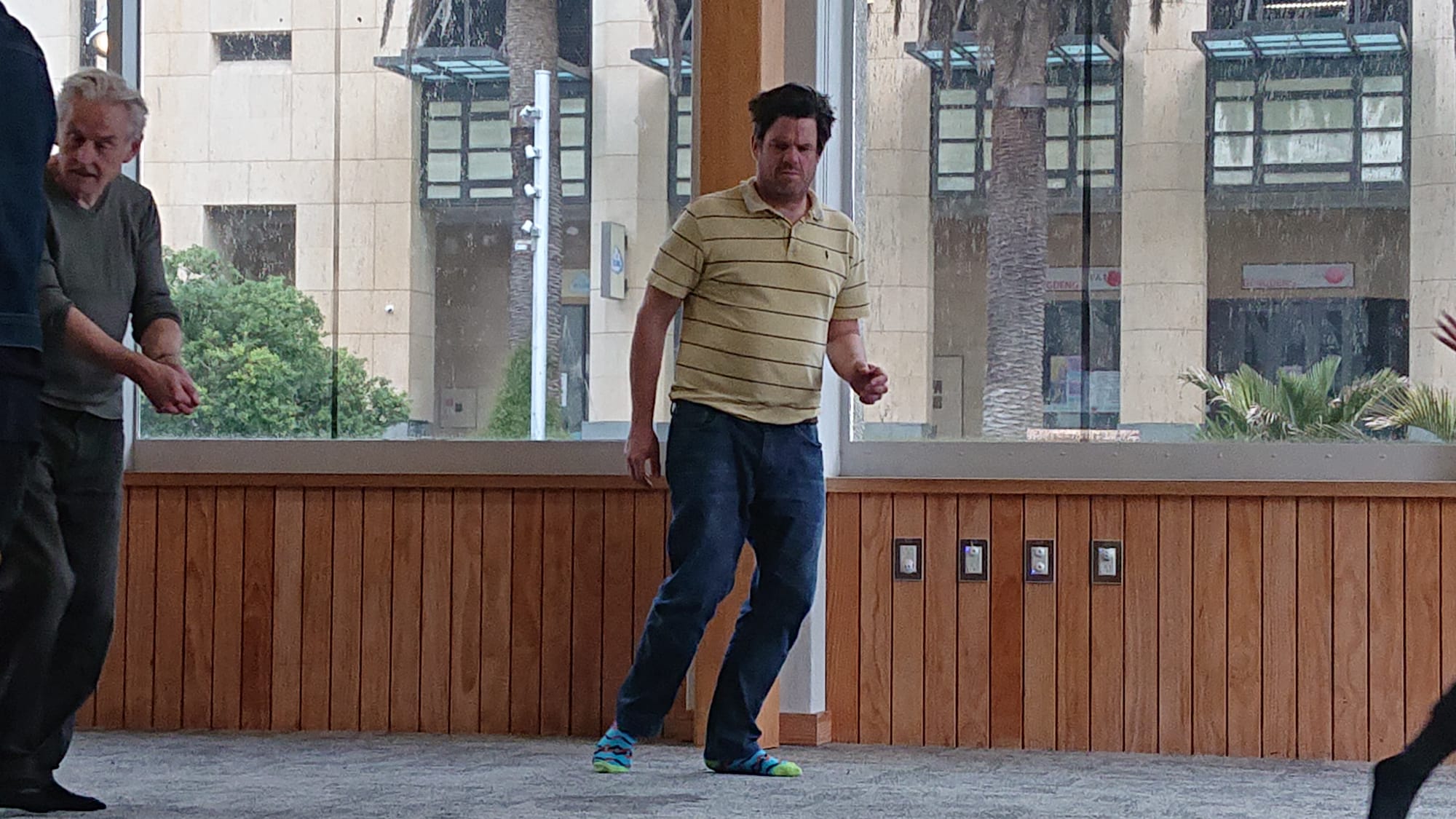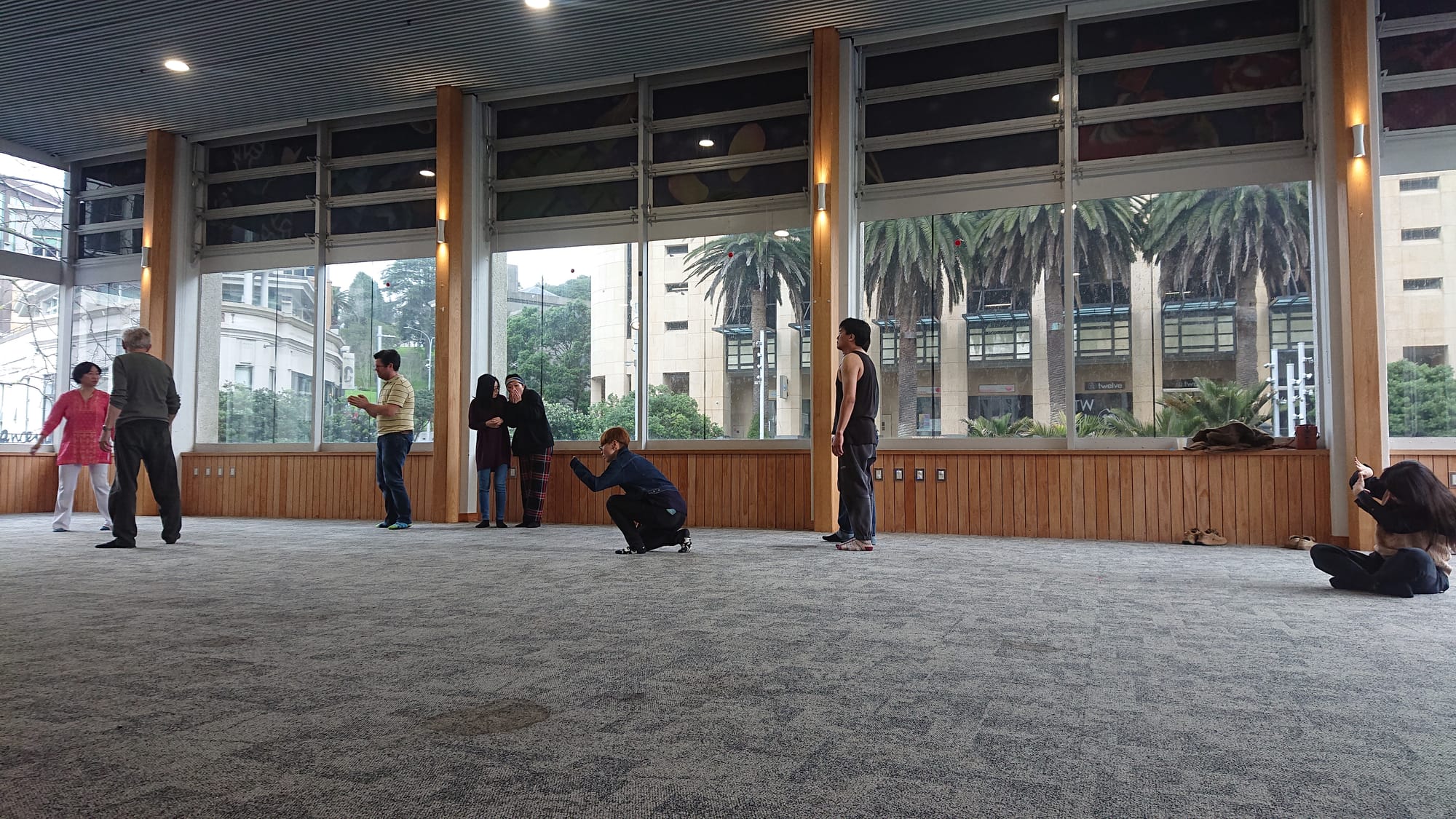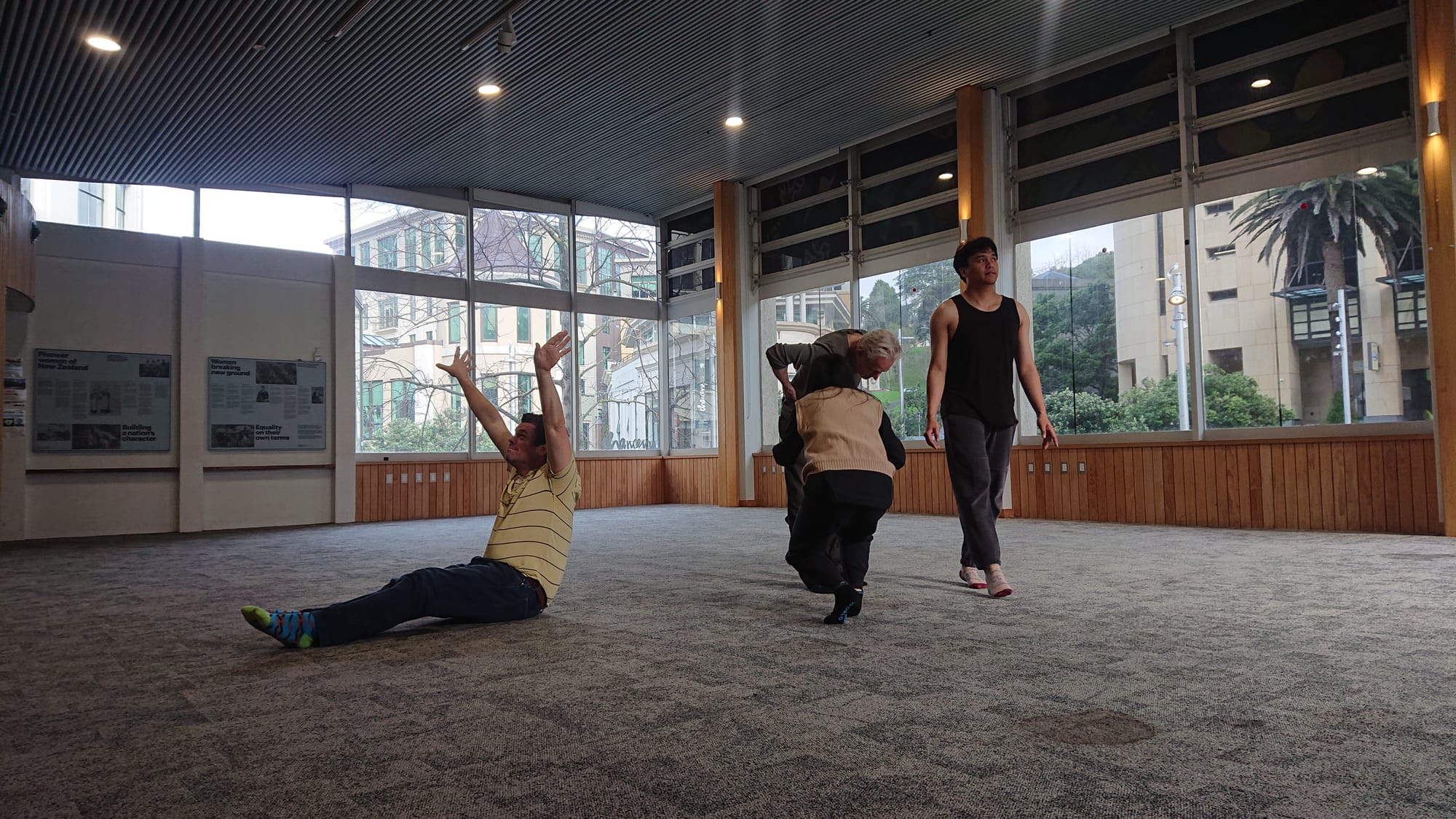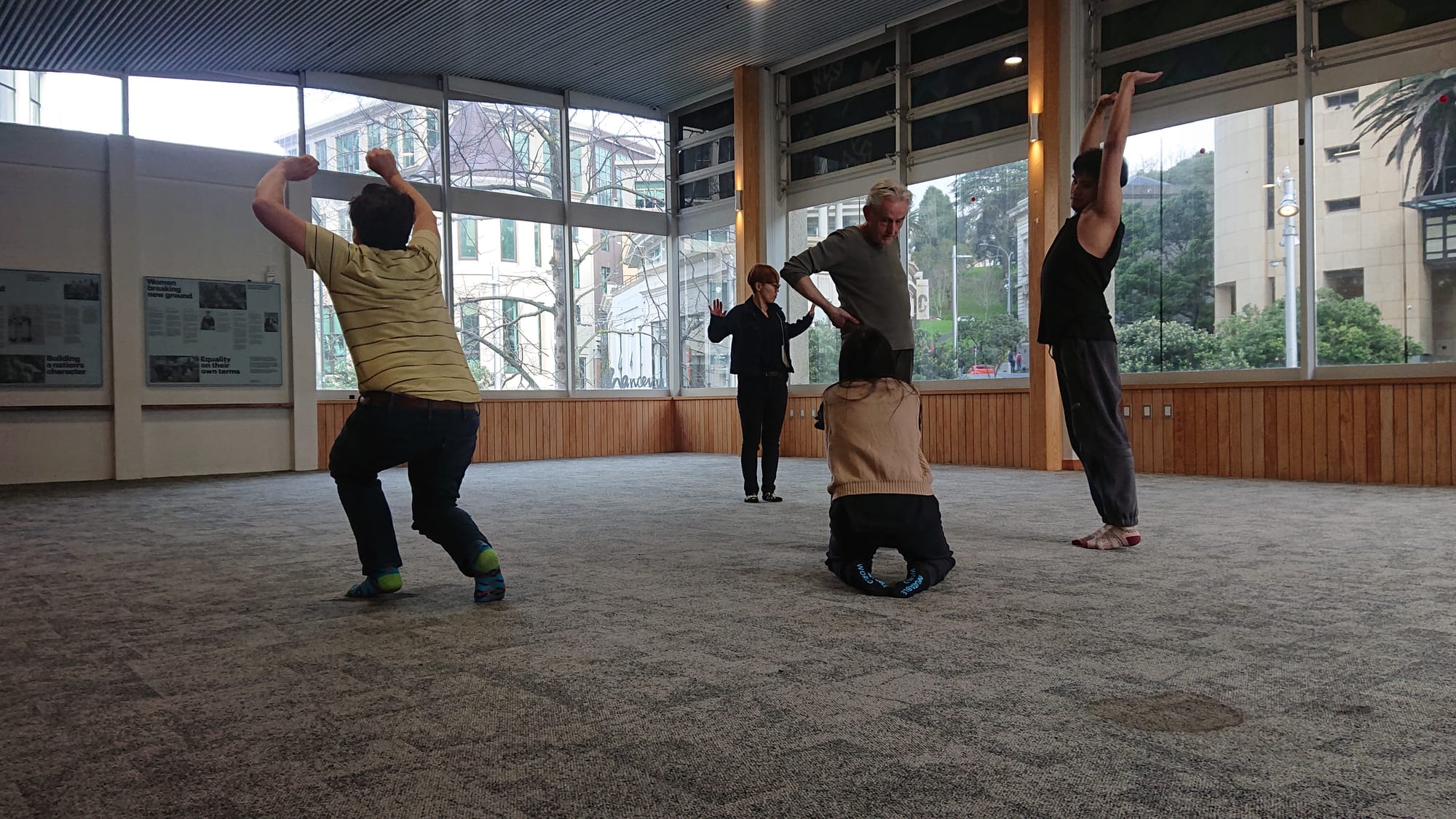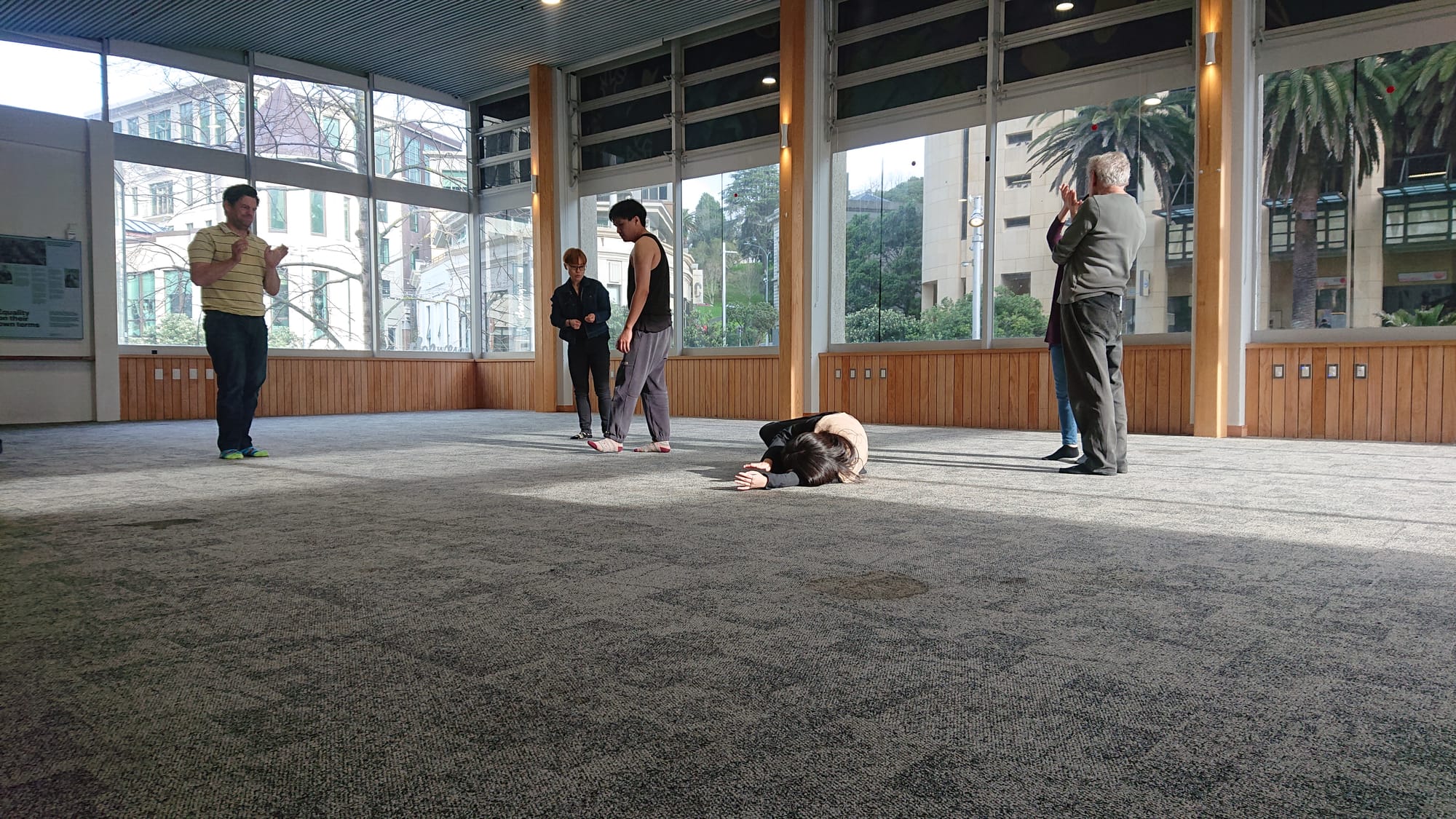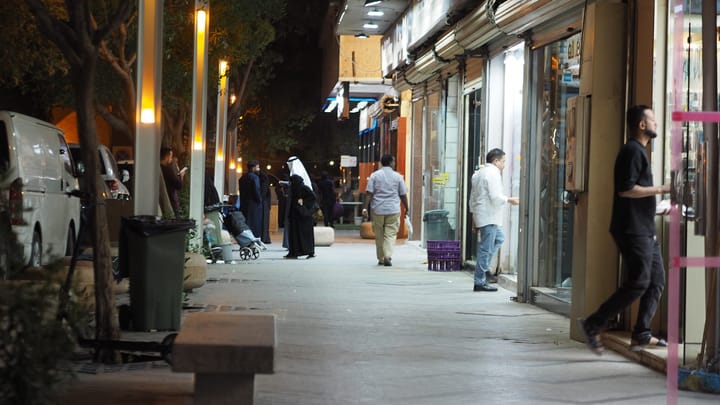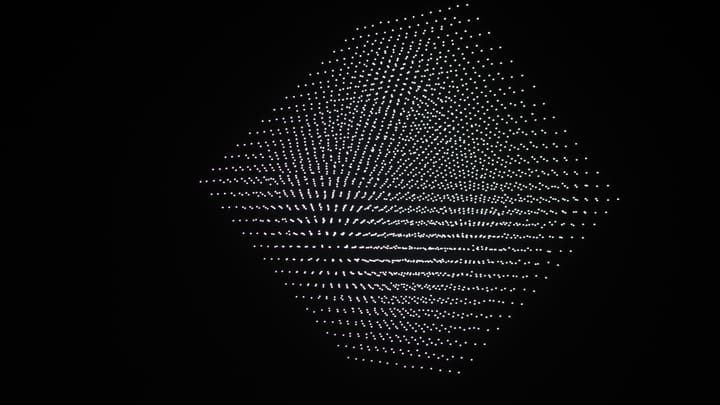Minus workshop 9: speech as movement | language as perception
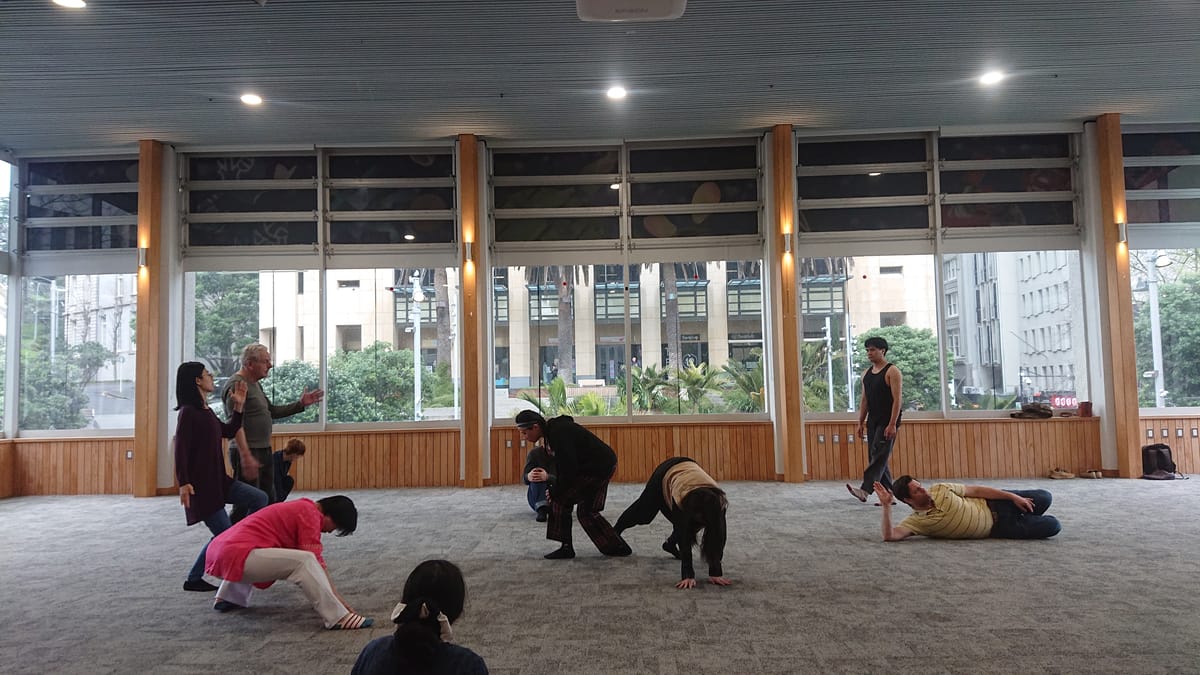
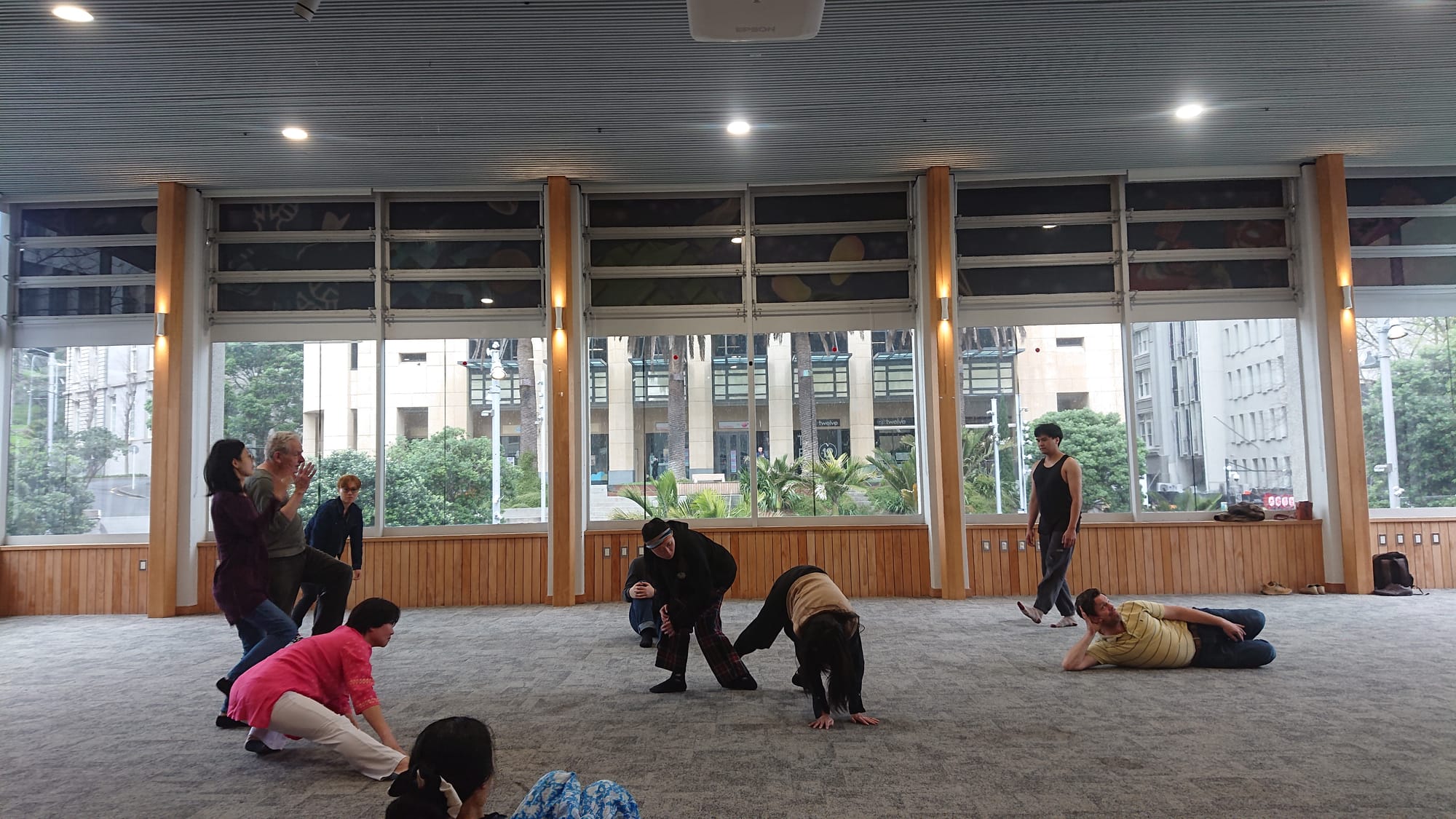
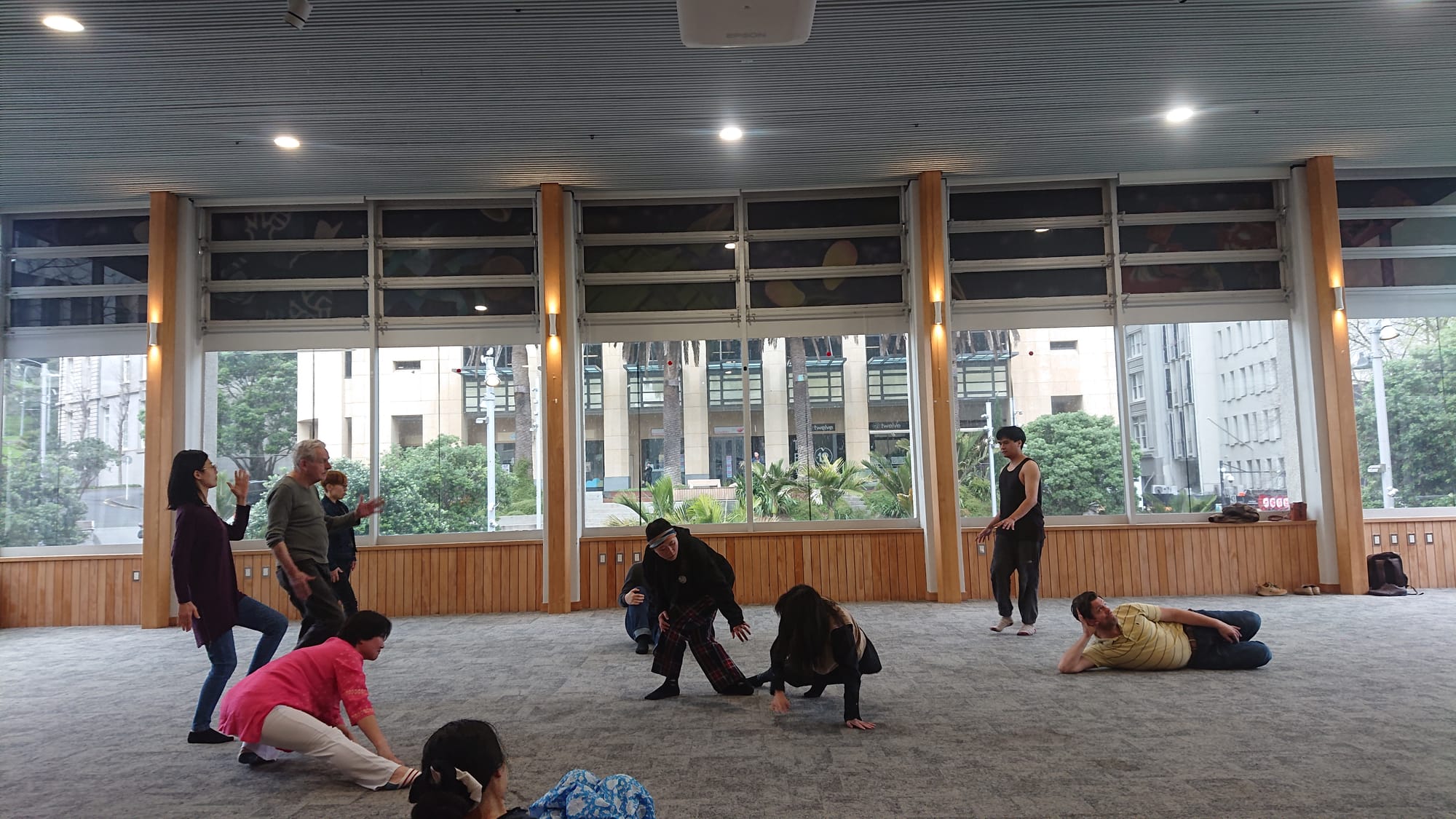
as I wrote in Minus Theatre workshop 8 this is to be a short report. Schematic even. Drawn from notes I have brought with me to Riyadh.
- movement for primitive organisms, cilia and flagella, rolling, swimming—
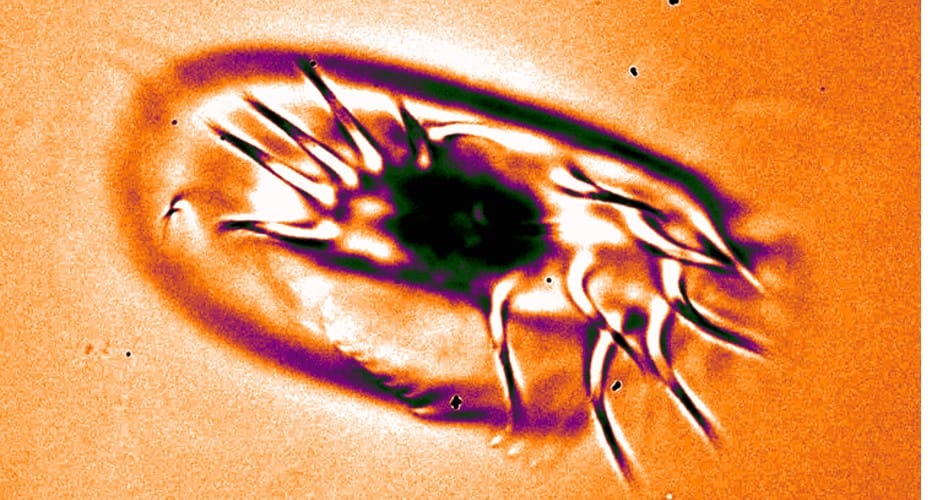
—is perception: single-celled organisms move in the outside world with the same parts as those with which they feel, or perceive, perception being outside, the outside world. They move to find nutrition.
We move for what?
energy—we have been talking about this in Minus. Our 'food' for which we move is as much feeling as food: we move to that which attracts us, so it is a matter of aesthetics. To feel, to see, allure.
From the workshop this phrase stuck in my head,
a radically devolved theatre
—another reminder today, 29 September 2025, of the difficulty of directing Minus, and the joy of it. Because, we ended up somewhere really interesting, but ended. Inbetween.
Ricky, Nick, Chenby, Chen, Kuang, Mike, Ann, Alex (Jeff observing) and Joyce, who was swept away early by her mum, who, her mum, resented me saying if she wanted to stay to watch she would be participating. Joyce struggled to follow my struggling explanations of what it is Minus does. At the end, I thought and said, we know it when it works. Then, what it is is abundantly clear. Clear as the weapon I talked about, of the imagination.
Things that stuck, a list:
– vocal style of passions, embedded speeches (see notes for workshop 8)
– movements that are both continuous and interrupt, cut across one another
– suspended space of stage, the meaning can shift of an imagined thing because as soon as it is up on stage, having both virtual (imaginative) and actual (perceived) aspects, it is suspended
– that it's worthwhile and that while we, I, may struggle to explain, to help people into it, it's very clear when Minus works: listen to engage
– engagement is always receptive, the power to be affected. This does not develop from voice as perception; also, decide who the passion, the embedded speech, which interrupts the action, is addressed to. Is it, for example, an unfortunate family dinner, when, finally, you stand and get something off your chest? Is it a political address, from a podium to an audience of thousands? or, to a group of friends? Is it declared as a piece of bitchy gossip? divulged by me as a secret? given as a testimony before witnesses? Are the audience the witnesses? (Like the Greek chorus, who danced in the orchestra.) Yes. This, but still to decide is who the audience is: Is it composed of friends? Judges? Is it a tribunal? Or is it my tribe to whom I, a shaman, am giving dramatic testimony of the other world? (There is a photo like this in The Family of Man book of the exhibition.)
– scenes will benefit from imaginative prompts, like that of Eiseley, the monster "or the feeling of something like a monster" in the basement of a normal house, complete and without shadow (here).
– I will be sending prompts as I find them.
Now it's Sunday night in New Zealand and the first Minus Theatre workshop without me will be tomorrow, Monday 3pm – 5.30pm at Ellen Melville Centre, Auckland.
I'll send the Minuses links to this series of posts, but as Chenby said, perhaps it's better to show what Minus does than explain it.
– for me it's a matter of prompts I find in my reading and in the problems encountered in the workshops, which always seem to present obstacles and at the same time to point forwards to Minus becoming what it is.
